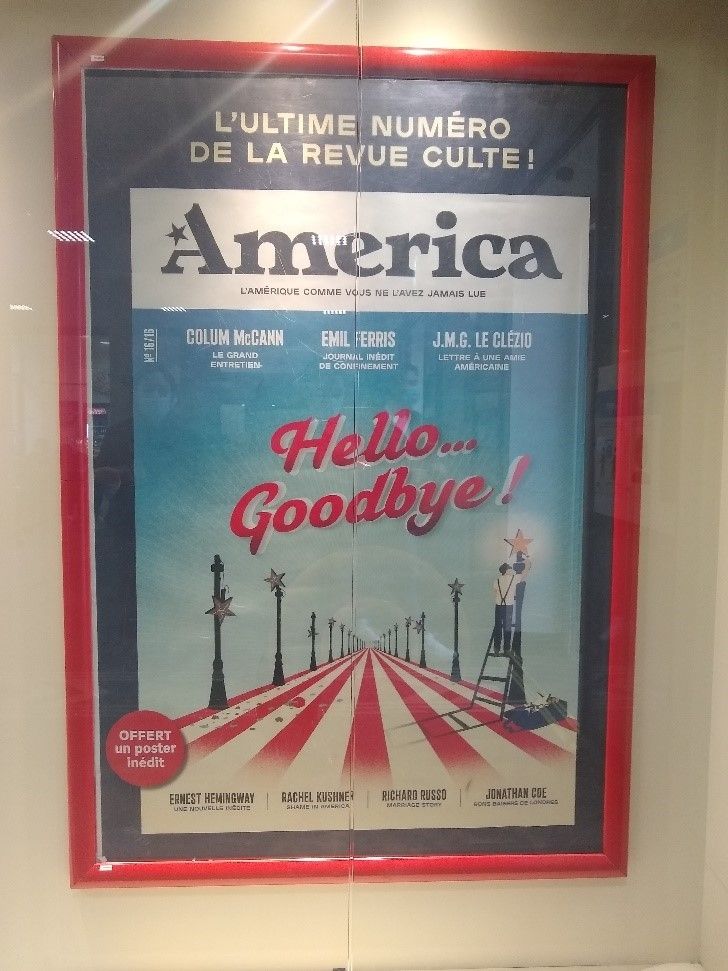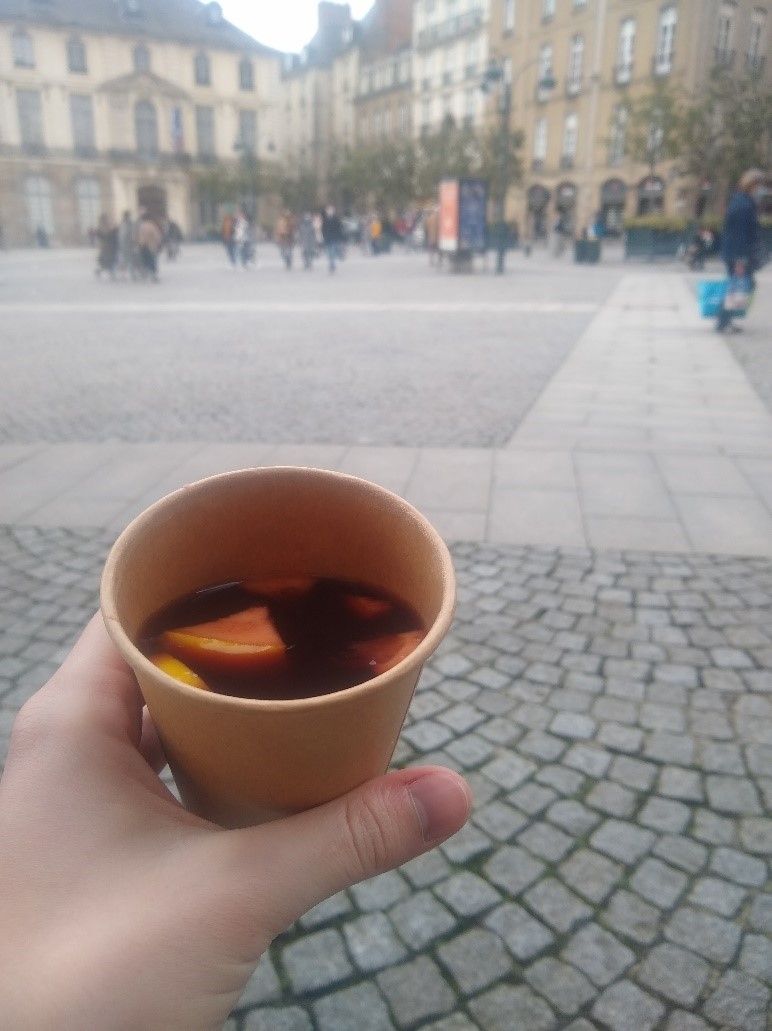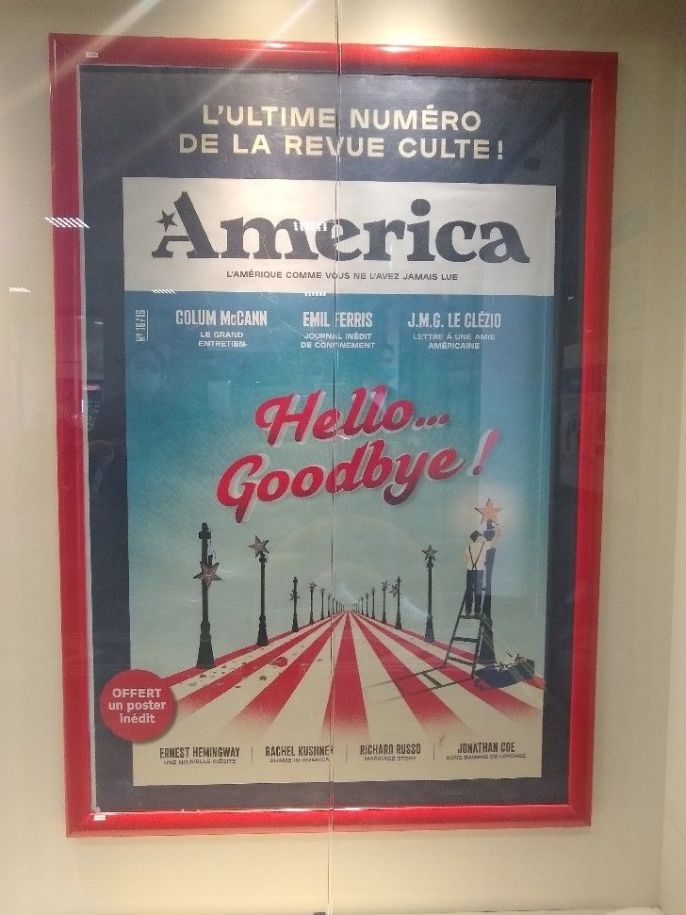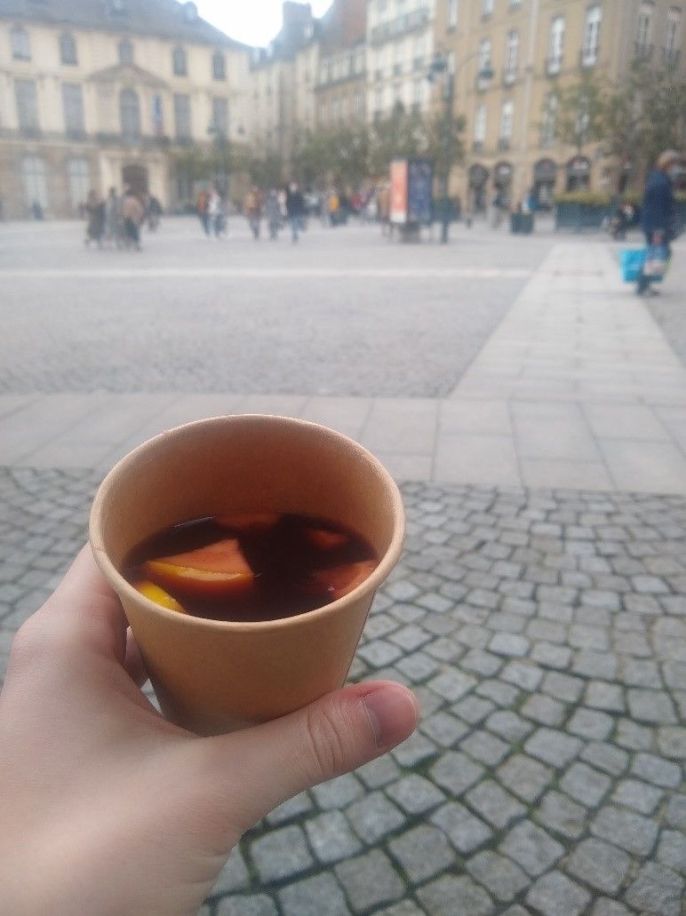AN AMERICAN IN RENNES

I’m not a person who generally defines herself by the term “American.” New Yorker, for sure; German-American, absolutely. I’ve never felt a huge attachment to the country I was born and raised in, perhaps because I traveled so much throughout my childhood. Here in Rennes, however, my Americanness is the first thing people notice about me. No matter how much clothing I purchase to blend in, how hard I work to perfect my accent, and how confidently I walk around the city, people know.
Sometimes I resent that fact. Whenever a shopkeeper notices my American accent and switches into English to be nice, I stubbornly press forward in French to make clear that I can handle this new language, that I don’t fit the stereotype of “uneducated American who wants to impose their language and values on everyone else.” I’m vindicated whenever a French person has to ask where my accent comes from (better unplaceable than distinctly American), and two times(!), I’ve gotten the compliment that my accent sounds native-like. Ideally, by the end of this semester, I would love to be at the point where I blend in with the rest of the French people.
Being identifiably American in France also means serving as the representative for all 328 million people back home whenever someone has a question about American culture. And when I say culture, I primarily mean politics. The very first conversation I had in France was with my taxi driver from the airport who immediately began to ask about our presidential elections and my opinions on the matter. To this day I have no idea how I managed to explain things while jetlagged and exhausted. Another time, at a doctor’s appointment, the nurse who was taking my information leaned over to me and said in French, “I don’t normally talk about politics during these appointments but…thank goodness you all elected Joe Biden!” For the next ten minutes, we dissected the nuances of the American electoral system. Regardless of my personal opinions, I feel a responsibility during these interactions to present American culture and politics with sufficient complexity to challenge preconceived notions, acknowledge failures, but also portray what is good about my home.

Then there are the moments when being foreign creates room for sweet pockets of joy, such as the interaction I had with a little boy at the market one morning while in line to order a galette. He must have heard me talking to my friend in English because as soon as she left, he said “Hello!” I was initially surprised to be spoken to in English, but as soon as I realized he was trying to talk to me, I smiled and struck up a conversation. His mother encouraged him in French to show me the rest of the English he had been practicing. Hearing his enthusiasm to be able to try out his skills on a real American made my day.
There was also the shopkeeper I bought vin chaud from, who, when he found out I was American, asked if I had any dollars on hand. I told him I had some coins, and when I asked why, he said his son collects foreign money and that he didn’t have any American money yet. The thought that I could make a kid happy with my measly 75 cents in spare change brought me such joy, so of course, I gave it to him. I, too, have a foreign money collection, but it had never occurred to me that someone in another country would find my boring quarters interesting.

My American identity brings with it a lot of historical and cultural baggage but being here in Rennes has encouraged me to embrace all of it, the good and the bad; to think critically about the ways French and American culture differ and how one country might handle things better than the other; and to reflect on how being American affects my reception in the wider world.
Sarah Welton-Lair
Gordon College
Related Posts
The Ultimate Guide to Studying Abroad in France
Beauty. Glamour. Taste. France has it all, making it a timeless destination for the millions of visitors who travel from all around the world to explore this incredible country each... keep reading
Day in a life: Excursion to Roche Aux Fées and Fougères
As part of the CIEE Rennes program, we go on cultural excursions together. These are awesome chances to learn about and experience the local culture firsthand! And, they allow us... keep reading
“Petits” Discoveries Every Day
Language is a tool that opens a door for you to explore a new culture, people, tradition, and more. Its acquisition can take any method: studying grammar and vocabulary by... keep reading






